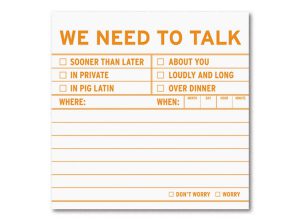
by Alex Patton | May 24, 2013 | Political Consulting
I am in a mood, so buckle up, but we need to talk.

We need to talk about data
We need to talk about data.
I am putting out a warning: the next time a candidate walks into or calls the Ozean office asking for “big data”, a web, or a social media presence ‘like President Obama’s’, they are going to get slapped. HARD!
Unless such candidate has a budget to match President Obama’s, they should take a look at THIS Obama AWS diagram of their computer network infrastructure (HINT: The graphic has a zoom!). then read this Obama case study.
If all of this is Greek to you, then you can’t possibly imagine the cost, time, and talent it takes to assemble just the network infrastructure – let alone the people to run the damn thing.
And the network infrastructure was the easier part!
So just STOP it with the big data!
Dirty secret About Big Data
Here is the dirty little secret, if you are running for state house, state senate, congress or even US Senate in some states, you can’t afford big data.
Before you rip my head off, please read this: Most data isn’t “big,” and businesses are wasting money pretending it is.
Let’s be honest – most likely, your campaign can’t afford true big data (yet) unless you are operating at a presidential or party level. If we continue to be honest, in most gerrymandered districts, the successful use of big data would be negligible.
Big Data
Here is another dirty secret, Big Data is used to shave the margins.
In a presidential campaign or a large campaign where the winning margins are slim AND THE BUDGET ALLOWS, big data can be extremely useful.
HOWEVER,
If you talk to anyone seriously involved in predictive analysis they will tell you that their work is on the margins.
So think about it, if you are in a district that averages 60% of the vote (like most districts) for one party is it wise to pay for ‘big data’ to push it to 63%?
Next, if you are in a district that is competitive (within 10%), you have to ask yourself: “Are you willing or able to pay for BIG DATA?”
I have been involved in enough of these campaigns – even at the Congressional level – to know that candidates complain about paying for one more mail piece or 100 GRPs on TV, let alone BIG DATA.
BIG DATA & Fieldwork
But, here is the REAL unspoken part – Big Data doesn’t work without robust field work.
I am a numbers GEEK. I love them. I love data. I love multivariate regression, etc. I love SPSS. However, the real benefits of big data are NOT just a one time purchase of data.
Big Data or “Obama data” – ONLY works when you have robust field operations feeding real time data BACK into a system creating a closed feedback loop.
Big Data is NOT a one time purchase of credit card company data and calling it “big data”
The true genius of the Obama campaign was:
- having initial data —>
- purchasing data to augment the initial data set —->
- having real time field intelligence —>
- creating hypothesis —>
- creating predictive models —->
- having real time field intelligence feed into data set—->
- running experiments against predictive models —->
- comparing results to hypothesis —>
- refining predictive models —->
- repeat over and over again until its over.
The Obama campaign had on staff PhD level data analysts, a robust field operation, a unmatched Internet infrastructure, and the money to finance it all.
You most likely don’t.
The Saving Grace
There is a saving grace in all of this. There are only two real numbers your campaign should care about.
1) What is the likelihood the voter will vote?
2) What is the likelihood the voter will vote for you or your campaign?
Those two numbers for 95% of the campaigns in American are fairly easy to compute for any political consultant worth their weight in salt. They are not easy to perfect, but they are easy to compute. (if they cant understand that sentence, please contact Ozeans’ Political Consultants)

The Value of Experimentation
The most interesting take away for me in this BIG DATA debate is the value of experimentation in campaigns.
If you look at big data in campaigns- big data is using large data sets to test hypothesis in order to create and refine predictive models.
However, here is the kicker – ONLY by testing hypothesis, can a campaign refine their models.
The issue is that testing means FAILURE and FAILURE means a ‘waste’ of resources, right?

We must embrace experimentation
BS – You should value the political consultant that says, “I have read the most recent literature, but you know what? I don’t know. Let’s test that hypothesis by running an experiment.”
The problem is, you don’t read the press articles on the experiments that the Obama or Romney campaign ran that failed (okay, there was orca), and I will bet you my entire net worth there were many, many, many failed disasters. But the campaign learned from these failures.
The Big Data Truth
In most all cases, your campaign can’t possibly afford true BIG DATA.
If your campaign budget won’t allow you to fund small scale experiments, your campaign can not develop nor afford BIG DATA.
SO STOP ASKING FOR BIG DATA!
What your campaign should strive for is building models that are good, embracing experimentation, and developing a robust field operation that refines your data.
Commit to that and your campaign will be better off.

by Alex Patton | May 17, 2013 | Political Consulting, Political Research
The calls are starting – first time candidates and incumbents are starting to call in order to explore potential campaigns in 2014.
Awhile ago, I wrote a check list for first time candidates, and while I still stand by this simple checklist, I have something additional to add to the list.
You need a political consultant.
Why? Let’s explore, because its Science Friday.
Why you need a political consultant
Setting aside hindsight bias, let’s begin with that fact that after 30 years in political consulting and political campaigns, I don’t know many things for certain, but I know the following to be absolutely true:
Our brains are designed to take shortcuts and often unwillingly and sometimes even willingly deceive us.

Our brains deceive & fail us
Let’s be honest, if you…or ‘someone you know’…is exploring a run for office, you most likely have a healthy ego. It is this healthy ego that allows you…or your friend… to feel like you have something to offer the public that they should “buy.”
Great.
The moment you verbalize your intention to possibly consider a run for office, people & your own brain begin to lie to you – even more than normal.
Why People Lie
Your friends lie because they like you and don’t want to have a candid conversation.
Your friends are not intentionally lying, but they will say thinks like “I think you would be great.”, “We need good people like you to run.”, “You would be leaps and bound better than the nit-wits we have now.”, and various other pleasant things.
People who do business with the office you seek lie because you may win.
They are looking out for the own self interest and they will be very nice to you, especially in the early stages of exploration.
Your friends and people lie to you because they don’t know better.
Your friends & others may give you an honest opinion that you may make a fantastic public official, but don’t know the first thing about political realities, political campaigns, or the campaign process.
Why Your Own Brain Lies to You
This entire Science Friday will be dedicated to the study of irrationality, heuristics and fallacies.
Let’s just state two things as facts as a summary of the entire field of research & literature:
- Our brain has two parts, an emotional part and a rational part. These parts must work together and are often in conflict.
- Our brains take shortcuts (heuristics) in order to make order of the world and to survive.
If one does not have a meta experience and take the time to think about thinking, you are helpless to fight the shortcuts your brain is conditioned to take.
Even if you have a meta-experience, if you do not build deliberate systems to force yourself to fight your brain, you are helpless.
This is exactly why intelligence analysts who are dealing with far more complex issues other than “should I run for office?” build these critical thinking processes into their workflow.
Bottom line: our hunches, our guts, our thoughts are often just dead wrong.
Let’s explore some common issues:
Confabulation
As humans, we are often completely ignorant of why we make the decisions we do (like run for office). We make the decision, then perform mental gymnastics to rationalize the decision. It happens lighting quick, unconsciously and then we rationalize our decision by filling in our memories and just making stuff up. We do this so often we are blissfully unaware that our brains are doing it. We simply must rationalize the decisions we make.
Fun fact: If you are asking about running for office, you want to run for office. Most likely, you are asking around seeking a rational explanation to justify your decision.
The Dunning-Kruger Effect
I don’t want to insult you, but all humans (even great political consultants) fall subject to the Dunning-Kruger effect.
This effect tells us that most of us are extremely poor at estimating our own competences and the difficulty of the complex tasks in front of us. True, the effect is more pronounced among unskilled labor, but this makes the trap even more dangerous for aspiring politicians.
As David McRaney tells us, “The less you know about a subject, the less you believe there is to know in total. Only once you have some experience do you start to recognize the breadth and depth you have yet to plunder.”
“In the modern world the stupid are cocksure while the intelligent are full of doubt.” – Russell
Political campaigns are complex operations that unless you have participated in them before, you can’t possibly know what it is like to be a candidate.
Here is another issue, just because you have participated in a campaign as a volunteer/manager/staffer, you can’t possibly know what it is like to be a candidate.
Side note: This especially holds true when it comes to the area of raising money. Remember there is a major difference between raising money for your favorite charity/business and raising money for your own political campaign. I routinely take the amount a first time candidate tells me they can raise, cut it in half and cut it in half again. More than likely, this is the amount they will raise.
Subjective Validation
Remember those encouraging words your friends tell you? You are falling subject to subjective validation.
The subjective validation tells us that people are prone to believing vague statements and predictions are true, especially if they are positive and address you personally.
The point

These are just the tip of the iceberg
These are just three of the cognitive traps that we as humans fall into. Worse? We fall prey to them all the time without noticing, and these are just the TIP of the iceberg. (To see a more comprehensive list – look to Wikipedia or look at the additional reading listed at the bottom of this post.)
The Solution
Lucky for you and your brain, there is a solution: hire a great political consultant.
Any great political consultant must study brain function. It is our job to understand the decision making process so that we can understand how voters make decisions, how political decisions are made, and how we can affect these processes.
Our job is not only to help you navigate to victory, but also to have the experience and courage to be the check against your brain.
At Ozean, we receive feedback after every campaign cycle that the number one thing our clients appreciate most is our ability to cut through the “fog of a campaign” and be candid – even when it hurts.
Ozean does this by building into our processes the systems to combat not only your cognitive biases but our own cognitive biases. This takes effort, skill, and it takes an understanding of how our brains naturally deceive us.
We are continuously floored by the number of political consultants that are operating on their guts, their rules of thumb, and their own flawed thinking.
In closing, your friends lie to you & your brains lie to you. You need a political consultant to help you navigate these waters, and you better make damn sure your consultant won’t tell you only what you want to hear.
If you would like to discuss your potential and use our critical thinking processes, please do not hesitate to contact Ozean.
Additional Reading
Ariely, Dan (2009-06-06). Predictably Irrational, Revised and Expanded Edition: The Hidden Forces That Shape Our Decisions.
Heuer, Richards (2012-01-17). Psychology of Intelligence Analysis, Central Intelligence Agency.
McRaney, David (2011-10-27). You Are Not So Smart: Why You Have Too Many Friends on Facebook, Why Your Memory Is Mostly Fiction, and 46 Other Ways You’re Deluding Yourself.
Silver, Nate (2012-09-27). The Signal and the Noise: Why So Many Predictions Fail-but Some Don’t.
Sunstein, Cass R.; Richard H. Thaler (2008-04-08). Nudge: Improving Decisions About Health, Wealth, and Happiness (p. 257). Yale University Press. Kindle Edition.
Wikepedia, List of Cognitive Biases

by Alex Patton | May 10, 2013 | Political Consulting, Political Research

Welcome to Science Friday. A day when we look at some research and discuss the findings and/or implications.
When I was on my rant about Mark Sanford’s “win”, I came across this gem from Nate Silver : Sanford and the Electoral Effect of Sex Scandals, which in turn lead me to this study:
by Nicholas Chad Long of St. Edward’s University.
Scandals were categorized on the nature of scandal (abuse of office, financial, sex) to see if there were differences.
The results reveal that those senators seeking reelection while confronting a scandal suffered a six percent decrease from their expected vote. They also attracted higher quality challengers who spent more money against them
Scandals involving immoral behavior hurt incumbents the most, while financial improprieties hurt them the least.
Another KEY quote from the paper is as follows:
For a scandal to have any impact on an election, potential voters have to know about it and care about it. The former is the job of the press. Voters rely on journalists to provide vital information about candidates, so that informed decisions can be made at the ballot box. Though the sources for that information are changing, the valuable role that the press plays in providing it is not (Graber 2009; Iyengar and McGrady 2006).
The study is also worth reading for the review of the literature on the subject. It covers party switching, voter turnout, campaign finance violations, corruption charges, and partisan differences.
Conclusions about Political Scandal

How much is a political scandal worth?
“The coefficients are basically the same. Incumbents committing financial improprieties suffered the smallest decline (4.3%), while those displaying behavior seen as immoral suffered the largest decline (6.5%). This leads one to conclude that voters do not necessarily care about the nature of the transgression, but only that a transgression has occurred.”
“While there was essentially no difference in the number of Democrats or Republicans involved in scandals, the results reveal that voters did punish Republicans slightly more than Democrats. The results also show that incumbents, regardless of party, suffered most from objectionable behavior related to matters of morality, such as sexual indiscretions. The vast majority of incumbents were inclined to seek reelection, even in a hostile environment, rather than abandon their Senate careers. The evidence proves that, in fact, two-thirds were victorious in November. So while scandals blunt the incumbency advantage, they do not eradicate it.”
Gotta love science.
My hypothesis is that candidates not having the advantage of incumbency suffer much greater.

by Alex Patton | May 7, 2013 | Political Media

Ozean Media’s theme for the year!
With apologies to Luke Sullivan & Thoreau, Ozean Media is stealing this as our theme for this year.
Always remembering Occam’s razor: when you have two correct answers that both solve problem, the more correct one is the simplest one!
We must keep in mind that political campaigns like advertising are emotional. Every campaign can be reduced with great difficulty to one main emotion, capture it correctly and your political career can take off.

by Alex Patton | May 6, 2013 | Ozean Media

My digital sabbatical took place during the unnamed tropical storm this past weekend
For the past 4 days, I have been on a self-imposed digital sabbatical.
I decided to go on this sabbatical after a difficult month and especially trying week.
I am still not completely sure of nor can I fully explain why I felt the need to totally disconnect.
However, I knew deep down that I was tired and needed to be still so that I could think. I know I needed the pinging to stop.
For my sabbatical, I checked into a beach condo on Thursday with plans for my wife and kids to join me after Friday work.
Digital Sabbatical Rules
Here were my rules:
- No smart-phone.
- No E-mails.
- No Phone calls (For emergencies, I gave my wife this number to this interesting invention I haven’t used in years….something called a land line).
- No Web.
- No Hulu, No Netflix.
- No Web Surfing.
- No Television.
I was NOT prepared for the difficulty that was involved with this sabbatical idea.
I checked into the Condo at about 10 am on Thursday and turned off my constant companion cell smartphone. What have I done? I thought about it, my cell phone hasn’t been turned off on purpose in years.
It took 5 minutes to move luggage into condo and look around. It took another 3 minutes to feel the stress of my sabbatical decision. No Email? No Web? Am I nuts? What in the hell am I going to do now?
It started to rain. I opened the door, listened to the surf, smelled the rain. THAT was different.
I went to the grocery store to purchase supplies. Wait a minute – no smart phone with a grocery list? I had to go up and down the isles looking for things, and a funny thing happened: I began to notice what fruit was fresh and smelled good versus what was on my list. I noticed all the ingredients that I have never used in my cooking. I read a label or 10. Interesting.
I spent about 30 minutes more than I normally would in a grocery store just exploring. I stopped and talked to the Veggie guy – what came in today? I asked him if the automatic dispensing of artificial mist actually helped the veggies stay fresh or was it just for aesthetic reasons. He didn’t know. Interesting. I noticed the numerous Beach Bums with their tons of different accents and their too-leathery skin. It was a strange collection of humans, some preparing to return North others complaining of the lack of sun. All in all, an enjoyable trip to the grocery store that was…. fascinating.
Returned to the condo and unpacked.
NOW WHAT?
I started to do some work that I brought with me, but then I caught the pile of books I brought with me out of the corner of my eye.
In this pile, there was a book that I have been meaning to read for years, but just never found the motivation or the time. I knew it was a classic, but I also knew it would be a slow slug. I picked up my copy of Zen and the Art of Motorcycle Maintenance by Robert Pirsig and dived in.
The book did not disappoint. It was was a slow, deep, complex, slug-it-out kind of a read. I haven’t experienced a book like it in years. It took all my concentration, it took rereading passages, it took time to close the book and consider what the author wrote. Frankly, I am still processing some of what I read – this book is lingering in my head more than any book I have read in 20 years. The book was a delightful challenge, and I never would or could have read it with constant background pinging.
I ran. I ran in the rain and thought about what I was reading – thinking about Quality, my relationship with my children, the difference between scientific reasoning and art, and various other, random, stream of consciousnesses thoughts. In fact, I added 37 minutes to my normal running time without even noticing. Didn’t care, but I noticed that I felt great.
Then it started. The great unnamed tropical storm that hit Thursday evening, Friday morning. The 10 inches of rain caused the Great Battle of 2013 versus the assorted evil roof leaks. A small drip quickly escalated into an indoor rain. The intense battle raged for hours. Emptying buckets, moving furniture, and moping were all instruments of my battle. Trying to figure out where the leak was coming from and how to possibly stop the leak became my mission. The battle raged until about 3 am. Damndest thing: I found myself enjoying the ridiculousness of this experience: the wind was howling, it smelled different, the waves raged and I just went with it. In the end, I lost this battle.
My wife and family decided not to join me in the flooded condo, and I don’t blame them. I did notice that I was stuck and couldn’t get out. The road leading into the condo had funneled all the water into the exit road. I found myself wondering how deep it was, so I waded into it as a funny thought came to me, “The water is about 18 inches deep and I am a 40 year old man playing in the rain.”

I found myself playing in the rain
I read some more. Two additional books: one the regulation of the Internet and another on the importance of focus in business.
As soon as the roads cleared Saturday morning, I returned home, and during the hour and half trip – silence. No pings, no anxiety about the phone ringing, no news. It was nice.
The digital sabbatical continued for another 48 hours, but the effects remained the same.
Sabbatical Conclusion
After my initial shock and bewilderment, my time was filled with different things that either I had forgotten how much I enjoyed or filled with new things that I had been meaning to try or get to.
In the end, I feel refreshed and a little bit more in control of the pings, the alerts, and the URGENT messages.
I would highly suggest that you try a digital sabbatical, and let me know how it goes.












